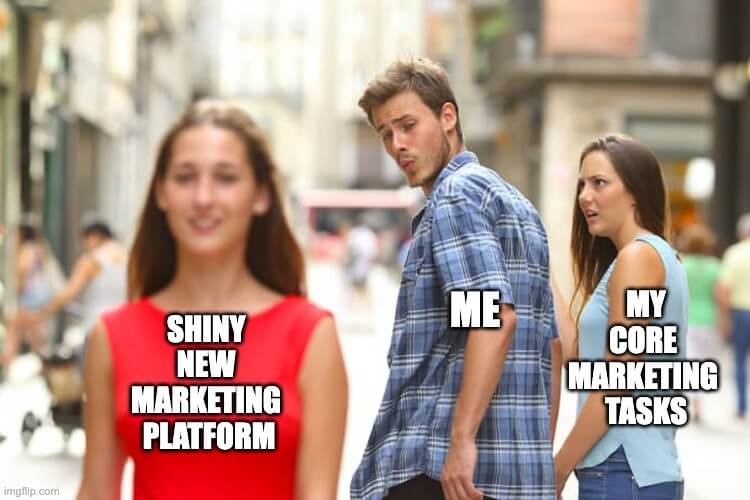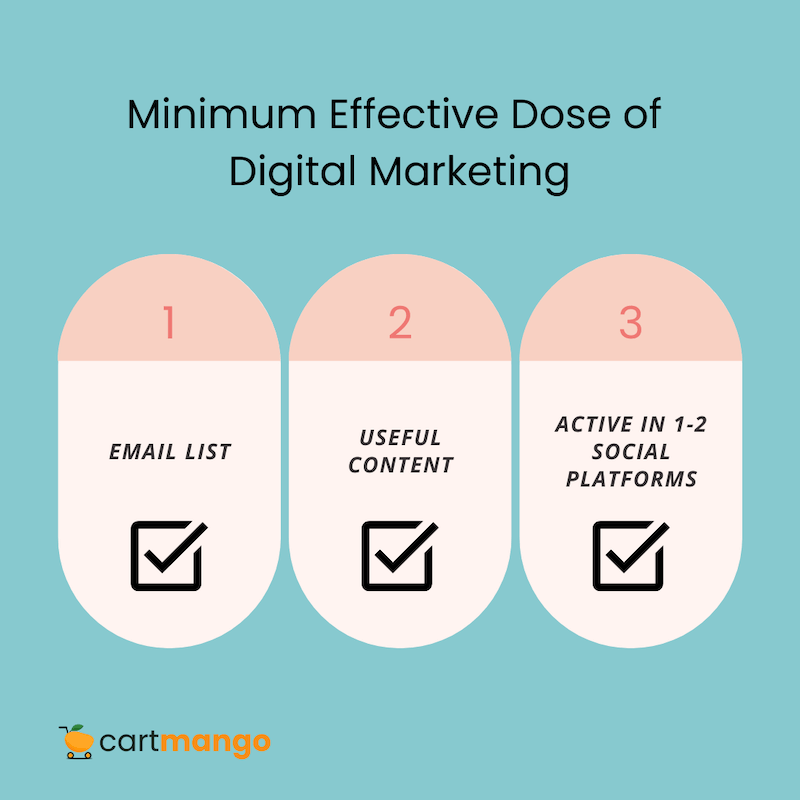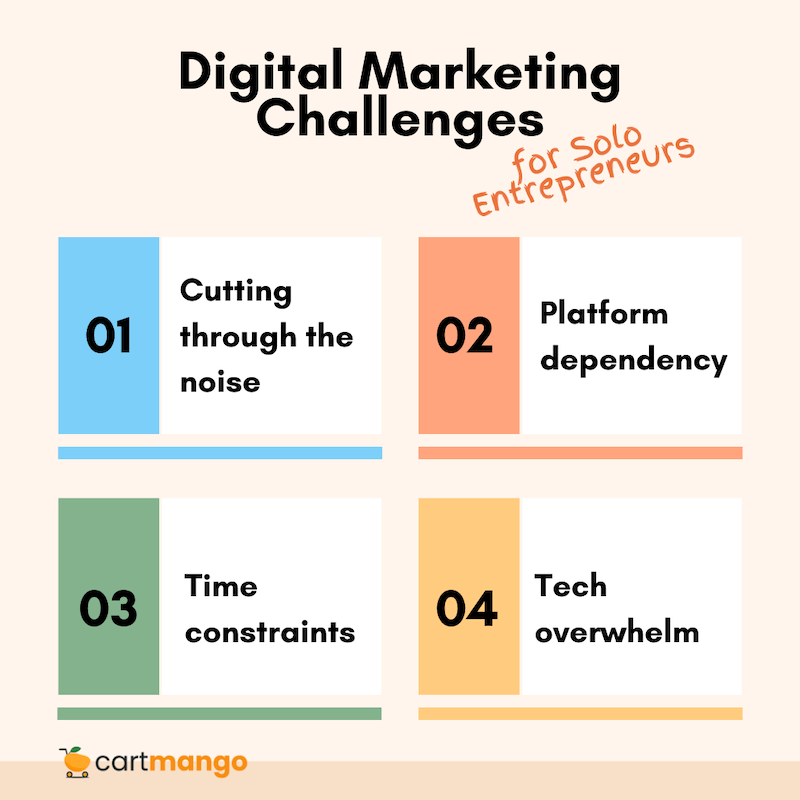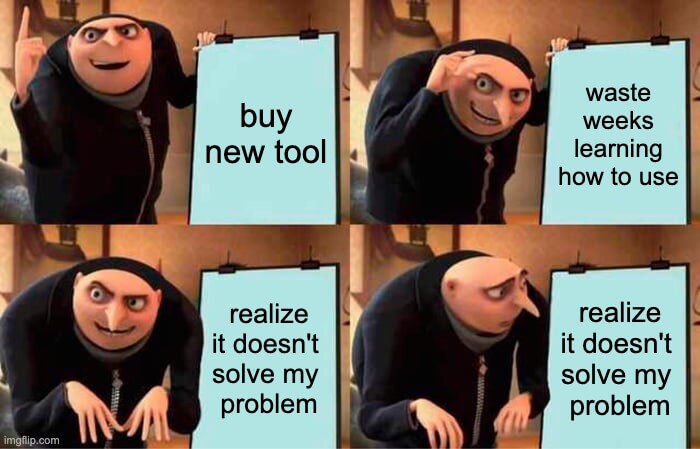The Digital Marketing Payoff Matrix
| Marketing Channel | Good Signs (Keep Going) | Warning Signs (Time to Change) | How Long to Wait | What to Do If It’s Not Working |
|---|---|---|---|---|
| SEO | Increasing organic traffic, Higher search rankings, More leads from search | No traffic increase after 6 months, Rankings not improving, High bounce rates | 4-6 months minimum | Audit keywords, Improve content quality, Check technical SEO issues |
| Paid Ads | Click-through rate above 1%, Cost per acquisition decreasing, Positive ROI | Low click rates, High cost per lead, No conversions | 2-4 weeks | Test new ad copy, Refine targeting, Adjust landing pages |
| Email Marketing | Open rates above 15%, Click rates improving, Subscribers converting | Low open rates, High unsubscribe rates, No clicks | 1-2 months | Improve subject lines, Segment your list, Test different content |
| Social Media Marketing | Growing engagement, Increasing followers, Traffic from social | Low engagement, No community growth, No clicks to website | 2-3 months | Try different content types, Post when audience is active, Be more authentic |
| Content Marketing | Increasing time on page, Content getting shared, Leads from content | Few views, No engagement, High bounce rates | 3-4 months | Focus on solving specific problems, Add visuals, Make content more actionable |
If you’re running a one-person business selling courses, coaching services, or digital products, you’ve probably asked yourself a critical question:
Is digital marketing actually worth my limited time and money?
With so many platforms, strategies, and conflicting advice, it’s natural to feel overwhelmed about where to invest your resources. That’s why I created the above comparison table for you.
How to Decide Whether to Continue or Pivot
Keep going with your current strategy if:
You’re seeing steady improvement in key metrics, even if it’s slow
Your cost to acquire customers is less than what they spend with you
Your audience engagement is growing over time
You’re getting positive feedback from customers about how they found you
Consider changing your approach when:
You see no improvement after waiting the expected timeline
Your conversion rates stay consistently low despite optimization
You’re spending more to acquire customers than they’re worth
Your engagement metrics are declining despite consistent effort
Now that you know how to evaluate your digital marketing efforts, let’s see why digital marketing can be valuable for solo entrepreneurs.
The “Minimum Effective Dose” of Digital Marketing
You don’t need to do everything.

Trying to be everywhere often leads to burnout and poor results. Focus on the core activities that drive most of your results.
For most solo entrepreneurs, these core activities include:

Building and nurturing an email list
Creating useful content that showcases your expertise
Maintaining a presence on 1-2 social platforms where your ideal clients spend time
Just these 3 activities can generate up to 80% of results for solo businesses. The remaining 20% comes from additional tactics that you can add as you grow. Yep, as you might have guessed – this is the “80/20” of digital marketing.
Email Marketing for Client Nurturing and Product Sales
Email remains the highest-converting channel for solo entrepreneurs. It’s direct, personal, and doesn’t rely on platform algorithms.
For coaches and course creators, segmented email sequences are 6X more likely to convert (source: HubSpot). This means sending different content to subscribers based on their interests or behaviors.
The most effective email sequence for digital sellers includes:
Welcome email (60-70% open rate)
Value-driven content (3-5 emails)
Soft pitch introducing your offer
Direct sales email with clear call to action
Follow-up addressing common objections
Keep emails short, focused on one main point, and include a clear next step for readers. You can use an email marketing tool like BirdSend to quickly set up sequences.
Content Marketing for Authority Building
Content marketing helps you get found and builds trust with potential customers. It works especially well for coaches and course creators who need to demonstrate expertise.
Blog posts that solve specific problems consistently outperform general informational content. According to Orbit Media’s blogging survey, articles over 1,500 words get 3X more traffic and shares than shorter posts.
For solo entrepreneurs with limited time, focus on creating “cornerstone content” – comprehensive resources on key topics your audience cares about. Then repurpose this content into social posts, emails, and other formats.
Social Media That Converts
Don’t try to be on every platform.
A study by Buffer analyzed over 100,000 users and found that those who posted consistently over 20 weeks experienced a 450% increase in engagement per post compared to inconsistent posters.
Choose platforms based on where your audience spends time:
Facebook and Instagram work well for coaches and lifestyle-focused entrepreneurs
LinkedIn drives results for B2B and professional service providers
YouTube has the highest conversion rates for course creators
Pinterest drives steady traffic for digital product sellers
Focus on providing value first, with roughly 80% value content and 20% promotional content.
–
Common Digital Marketing Challenges for Solo Entrepreneurs
Understanding the challenges can help you set realistic expectations about whether digital marketing will be worth the effort for your specific situation.
As a solo course creator, coach, or digital product seller, you’ll most likely face these problems:

1/ Cutting Through the Noise in Crowded Markets
The biggest challenge for solo entrepreneurs is standing out in increasingly saturated digital spaces.
There are over millions of digital content pieces created daily, making visibility increasingly difficult. When you’re selling knowledge products or services, you’re competing not just with other entrepreneurs but also with free content across platforms.
Course creators and coaches face similar challenges and many struggle to differentiate their offers and services from competitors.
Digital product sellers must contend with marketplaces filled with similar offerings, making unique positioning key for success.
Without a clear differentiator, your products/services risk becoming invisible among countless alternatives.
2/ Platform Algorithm Changes and Dependency
Platform algorithm changes can dramatically impact results without warning.
Facebook’s organic reach has consistently declined in recent years, making it essential to diversify your marketing channels. For solo entrepreneurs who’ve built their entire business on a single platform, these changes can be devastating.
Instagram, YouTube, and Google regularly update their algorithms, often prioritizing paid content over organic reach.
This creates a “pay to play” environment that disadvantages solo entrepreneurs with limited budgets. Building your business on “rented land” (social platforms) creates vulnerability that can undermine years of marketing effort overnight.
3/ Time Constraints and Consistency Issues
Time constraints present a major hurdle for solo entrepreneurs who handle everything themselves. Marketers struggle to balance organic and paid strategies due to limited resources.
For solo entrepreneurs, this challenge is amplified since you’re managing not just marketing but all aspects of your business.
Consistency is crucial for digital marketing success. But maintaining this consistency while creating courses, serving coaching clients, or developing digital products often leads to burnout or neglected marketing efforts.
The solution is creating systems and batching similar tasks – like writing all your social posts for the month in one sitting rather than daily. Without these systems, marketing becomes reactive rather than strategic, reducing its effectiveness and increasing stress.
4/ Technical Complexity and Tool Overwhelm
The technical expertise required to implement digital marketing creates another hurdle.
Many small businesses lack the necessary skill set to come up with effective digital marketing strategies and struggle to keep up with ever-changing digital trends.
Solo entrepreneurs face tool overwhelm with countless marketing platforms, analytics tools, automation software, and content creation applications.
Why? Because each new tool adds complexity and learning curves that consume precious time.
–
Digital Marketing as Personal Brand Building
For solo entrepreneurs, your personal brand and business brand are inseparable. Share your journey, expertise, and personality in your marketing.
Personal stories can increase engagement compared to purely educational content.

Your unique perspective and experiences create connection that faceless brands can’t match.
Show the human behind the business. This builds trust, especially important for coaches and course creators where people are buying your expertise directly.
Digital Marketing Strategies for Digital Product Sellers
Digital product sellers benefit from showing the product in action. Tutorial videos, before/after examples, and customer testimonials increase conversion rates.
Consider creating product bundles to increase average order value. Sellers who offer bundles see an increase in revenue per customer.
Digital Marketing Strategies for Course Creators
Course creators need to demonstrate both expertise and the ability to teach effectively. Free workshops or mini-courses serve as powerful marketing tools that showcase your teaching style.
Create content addressing the most common objections potential students have. The top objections are usually price, time commitment, and doubt about results.
Launching with a limited enrollment period creates urgency and can boost conversion rates compared to always-open courses.
Digital Marketing Strategies for Coaches
For coaches, demonstrating transformation is key.
Case studies that walk through a client’s journey from problem to solution convert better than general testimonials.
Free consultation calls remain the highest-converting tool for coaches, but you must pre-qualify leads. Create content that helps potential clients self-identify as a good fit for your services.
–
Digital Marketing as a Career Path: Is It Worth Pursuing?
While we’ve focused on using digital marketing for your business, you might also wonder if a digital marketing career itself is worth pursuing. Many entrepreneurs actually started with a career in digital marketing before launching their own ventures.
The job opportunities in this field continue to grow as more businesses move online. Companies of all sizes need specialists, creating steady demand for digital marketing jobs across industries.
Is it a good career choice? For many, yes. The skills you develop are highly transferable – whether you work for others or eventually build your own business. You can choose between working for an agency, in-house for a company, or freelancing. This flexibility makes it an attractive career option for those who value variety.
You can start with specific skills from this article while working a full time job, then gradually transition to entrepreneurship if that’s your goal. Many successful course creators and coaches began their career path this way, using their industry knowledge to build authority.
–
Now, let’s explore the marketing tools you’ll need as a solo entrepreneur…
Marketing Tech Stack for Solo Entrepreneurs
You don’t need complex tools to start.
You just need these 2:
Selling your offers – be it online courses, coaching packages, or digital products (CartMango is free for 2025, and is super quick to set up)
Avoid tool overload. Each new platform adds complexity and learning curves. Only add tools when existing systems can’t handle your needs.

–
Scaling Digital Marketing As Your Business Grows
When you start seeing consistent results, reinvest in areas performing well.
If email marketing drives most sales (which I’m sure it will), improve your sequences or segment your list further.
Consider expanding to one new marketing channel when you’ve mastered your current channels. Look for natural extensions – if your blog performs well, consider starting a podcast using similar content.
Watch for signs you’re reaching capacity, like consistently missing posting schedules or delayed responses to potential clients. These indicate it’s time to create better systems or consider outsourcing.
–
So… Is Digital Marketing Worth It for Solo Entrepreneurs?
For most solo course creators, coaches, and digital sellers, digital marketing is not just worth it—it’s essential. The key is focusing on the right strategies for your specific business model and avoiding spreading yourself too thin.
Start with the minimum effective dose: email marketing, valuable content creation, and presence on one social platform where your audience spends time. Measure results based on conversions and sales, not vanity metrics like followers or likes.
Remember that digital marketing compounds over time. Consistent effort often delivers modest results initially, followed by accelerating returns as your audience and authority grow.
Use the comparison table in the beginning of this post to evaluate whether your specific marketing channels are performing as they should. Give each strategy enough time to show results, but be willing to pivot if the data shows your approach isn’t working after a reasonable timeframe.
The most successful solo entrepreneurs don’t try to do everything. They do a few things consistently well, measure what works, and gradually expand from that solid foundation.
The question isn’t if digital marketing is worth it, but rather which specific digital marketing activities are worth it for your unique business model and goals.
Related
- SendOwl vs SamCart: The Recurring Revenue Jail (2026)
- ThriveCart vs ClickFunnels: When more features hurt (2026)
- SendOwl vs Payhip: The “You-Leave-You-Lose” Model (2026)
- SamCart vs Kajabi: The Income Hostage Trap (2026)
- Sellfy vs Payhip: The Recurring Revenue Prison (2026)
- Podia vs Gumroad: The Recurring Revenue Handcuffs (2026)
- SendOwl vs Gumroad: The Recurring Revenue Black Hole (2026)
- Gumroad vs Sellfy: The Vendor Lock-in Cage (2026)
- Gumroad vs Payhip: The Hidden Trap for Creators (2026)
- ThriveCart vs SamCart – The Subscription Hostage Trap (2026)
